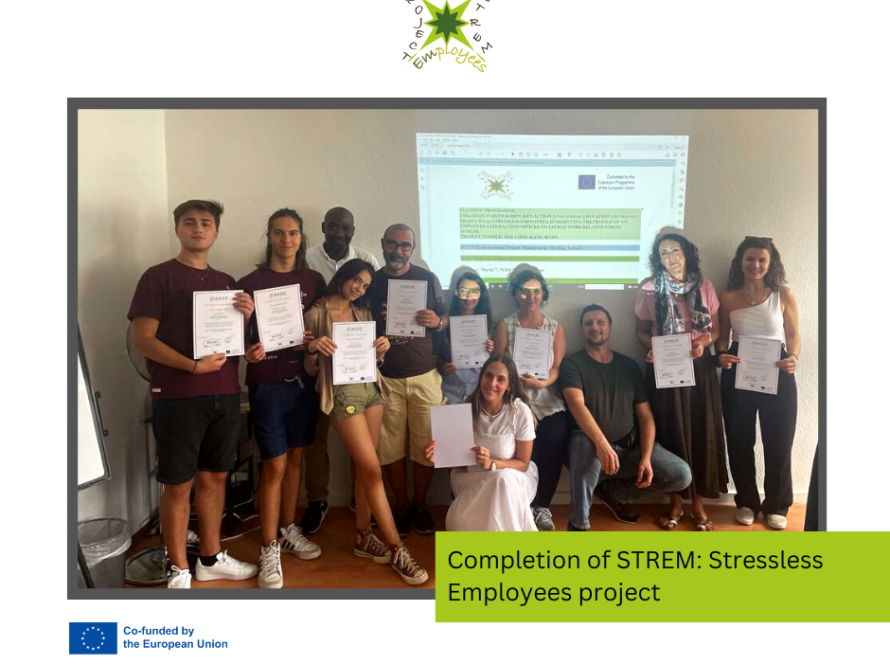In December 2020, the Erasmus+ Key Action 2 project, Digital Security for Senior Citizens (DiSC) project was launched with the aim of providing a set of innovative resources to support the online and digital safeguarding of European senior citizens against the increasing threats found online – exacerbated by the recent surge in online scams and fraudulent activity during the Covid-19 pandemic.
Cybersecurity has become one of the most important ‘hot topics’ within the European Commission in recent years, but the policy level focus, naturally is on Strategic planning at Pan-European level, with a strong focus on IoT, Industry, Digital infrastructure, Education and other fast-moving industries and sectors which are vulnerable to cybersecurity and data breaches. This is highlighted by the initiation of a Network of National Coordination Centres, a Cybersecurity Competence Community and a European Cybersecurity Industrial, Technology and Research Competence Centre by the European Commission in 2017.
The DiSC project will support and reinforce the development of key digital competences for all elderly European citizens, in a world where technology and, in turn, digital threats, scams and online dangers are developing more quickly each year. DiSC aims to increase the capacity of senior citizens to proactively identify and protect themselves against cybersecurity threats and scams which take place through technology and devices.
As part of the planned stakeholder engagement activities to promote the project and gather input on the project results, the consortium carried out stakeholder consultation meetings. The aim of these consultations was to present the DiSC project aims and objectives, give an overview of the outputs and time frame, and inform stakeholders of key dates they will be involved in the project activities.
Additionally, stakeholders were asked for input on all areas of the project through an open-ended questionnaire that gathered some quantitative information, but also allowed for individual views and opinions. These consultations and feedback helped the consortium to clearly understand and identify the expectations of key stakeholders, how closely they align with the intended project objectives and how the consortium will be able to maximise stakeholder satisfaction and uptake.
During January and February 2021, the project consortium consulted with 27 strategically targeted key stakeholders representing senior citizens, local ICT training project managers, regional University of the Third Age members, trainers, lecturers and IT professionals and digital engineers.
The profiles of the key stakeholders were broadly defined based on the type of input and feedback the field research intended to generate, and the decisions it informed within the project activities and development of the project outputs. Each of the respondents was asked to complete a questionnaire short questionnaire after a discussion and presentation about the DiSC project.
After they had been presented with an overview and purpose of each of the DiSC project tools, the stakeholders were asked to what extent they agreed that each of the tools would be 1) innovative, 2) useful, 3) help protect against digital security breaches and scams, 4) relevant for senior citizens, 5) applicable, 6) use the tool for themselves or their organisation.
- Overall responses to the planned tools were extremely positive, with more than 55% of all responses for each of the DiSC project tools in ‘Completely Agree’, and more than 90% of all responses agreeing with the statements about the competence framework, the benchmarking tool, and the online game.
- The Framework of Digital Security Competences averaged 56% of responses as ‘Completely Agree’ and 41% of responses as ‘Agree’, leaving only 3% of responses as ‘Partially Agree’. Some respondents felt that whilst useful and innovative, it may not necessarily be a tool which would directly support end users to build their digital security capacity, and therefore the stakeholders felt more uncertain about whether the framework would protect senior citizens against digital security breaches and scams.
- The Framework of Digital Security Competences averaged 56% of responses as ‘Completely Agree’ and 41% of responses as ‘Agree’, leaving only 3% of responses as ‘Partially Agree’. Some respondents felt that whilst useful and innovative, it may not necessarily be a tool which would directly support end users to build their digital security capacity, and therefore the stakeholders felt more uncertain about whether the framework would protect senior citizens against digital security breaches and scams. There appears to be some slight doubt as to whether the benchmarking tool would be able to be used by senior citizens and by NGOs and local initiatives organisations who currently support them, and subsequently, whether the tool would directly support them in protecting themselves against digital security scams, but the strong positive responses relating to the innovativeness, usefulness and relevance of the tool is highly encouraging.
- With regards to the Online Digital Security Board Game, the overall responses were 56% ‘Completely Agree’, 43% ‘Agree’ and 1% ‘Partially Agree’. The same variations in the responses were seen for the game, in which respondents felt strongly that the tool was innovative and useful but were not sure whether it could be something they would be able to use, based on the short overview provided, without seeing the final result.
Having taken the stakeholder consultation feedback into account when designing the initial drafts of the framework of digital security competences, the partnership will be piloting the finalised version of both the framework and the benchmarking tool in Autumn 2021 and hope to gain valuable insight as to how these tools can be improved to increase the uptake and impact of the DiSC project.



